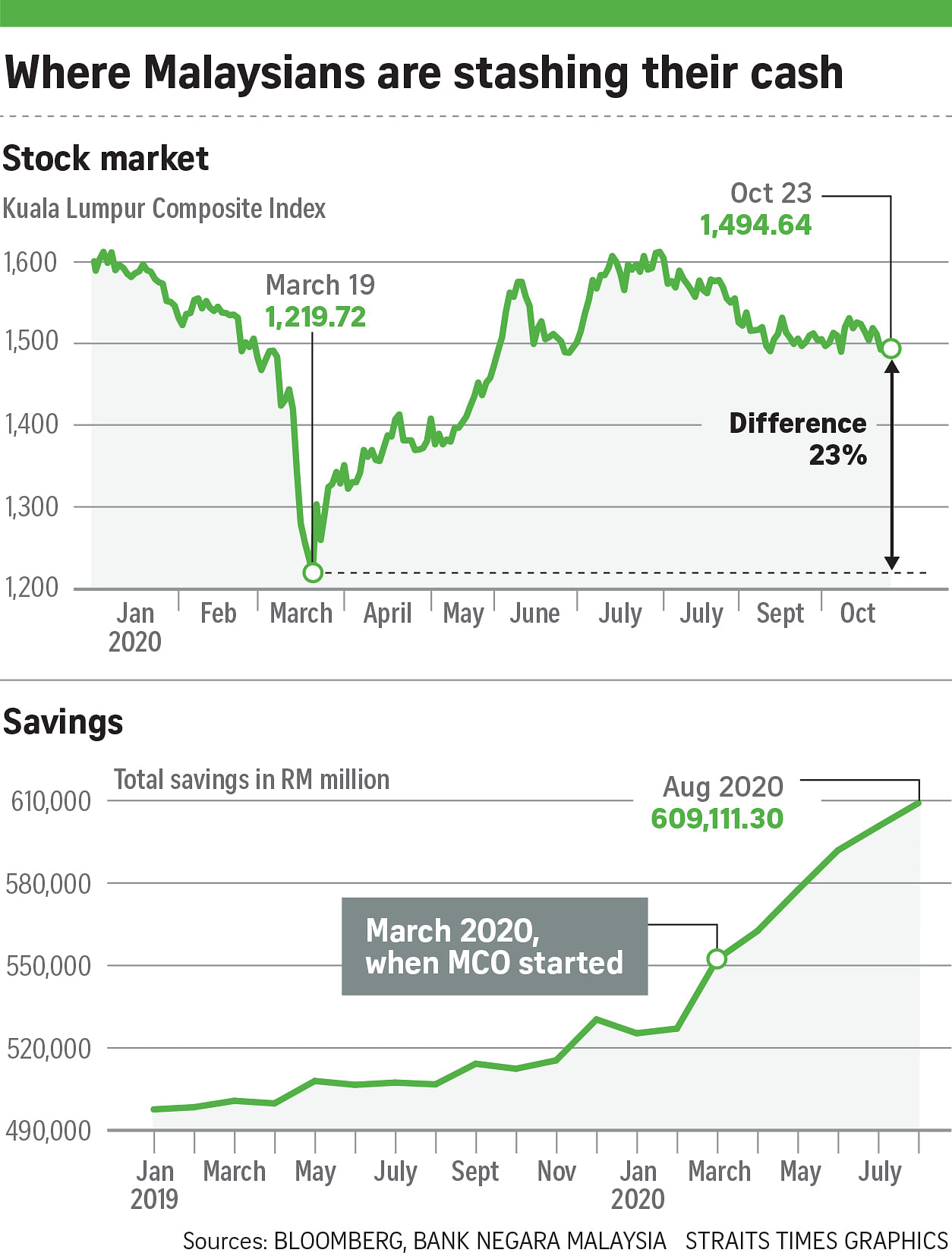A month into Malaysia's movement control order (MCO), software business owner Ariff Azraai was saddled with a mountain of bills.
As clients were deferring projects and payments, the 28-year-old decided to cash out his unit trusts, which he expected would tank with the impact of the Covid-19 pandemic on the economy, and take a plunge into the stock market.
"After paying my debts, I am back with my original capital. Thank God, we have six listed glove companies," he joked, referring to the boom in rubber glove shares during the global outbreak that has seen their values jump by up to 17 times compared to the end of last year.
Mr Ariff is just one of more than 276,000 new retail account holders on Bursa Malaysia who signed up between March and last month. This is about 170 per cent more than the number of new openings in the same period last year.
Analysts and industry insiders attribute the extraordinary growth to a combination of excess cash during the MCO - which slowed business and prevented overseas travel - coupled with the close to RM100 billion (S$33 billion) released by a loan moratorium, pent-up demand for liquid assets with good yields and a lower barrier to entry for fresh entrants into what remains a highly technical market.
This "perfect storm" helped Bursa Malaysia to stay afloat despite the flight of foreign funds during the ongoing Covid-19 crisis.
The benchmark Kuala Lumpur Composite Index (KLCI) ended March 19 - the day after the MCO was declared - at about 1,220 points, its lowest in 11 years.
Since then, though, the bourse has surpassed last year's close of 1,589 several times and breached the 1,600 barrier in July and August. It is now hovering around 1,500.
Retail investors accounted for more than a third of the value of stocks traded so far this year. Last year, they accounted for 24.5 per cent, which was already the highest since 2015.
These investors have soaked up more than half the RM22 billion of shares dumped by foreign funds so far this year, compared to their net buy of just RM2 billion in the whole of last year.
Economist Hafiz Noor Shams from the Research for Social Advancement think-tank told The Straits Times that there has been a huge increase in "free cash with nowhere to go".
Despite the economic downturn - gross domestic product was down 17 per cent in the second quarter and is widely expected to remain in contraction for the third quarter - the RM609 billion in savings and demand deposits at the end of August was nearly 16 per cent higher than at the end of February before the MCO. Growth in the same period last year was less than 2 per cent.
In an e-mail response to The Straits Times, Bursa Malaysia indicated that the lowest interest rate in 16 years of 1.75 per cent "has encouraged retail investors to look at the equity market".
Malaysians appear to have moved away from traditional safe havens which hedge against inflation, like property, where yields are low.
The transaction value of property plunged 31.5 per cent in the first half of the year to just RM47 billion with this year's Q2 the worst performing in terms of house price growth in the past decade.
"Having put aside money for stocks, I am now looking at cheaper properties below RM700,000 instead of RM900,000 or more," said corporate communications manager Leanne Lee, 38.
Like many other new and young investors, she has an account with Rakuten Trade, a leading online platform, which says 75 per cent of its clients are below 40 years old and that most have little or no prior experience in equities.
Rakuten Trade added 80,000 customers during the MCO, and in the past four months doubled assets held in trust to over RM2 billion.
Mr Victor Liew, a managing consultant at a local investment firm, told The Straits Times that cheaper brokerage and the decrease in lot size to 100 units from 1,000 helped lower the barrier to entry.
"There has been pent-up demand for higher-risk liquid investments, which is why you have seen rampant growth of money games," he said, referring to various unregulated investment schemes that have resulted in Malaysians losing billions of ringgit.


